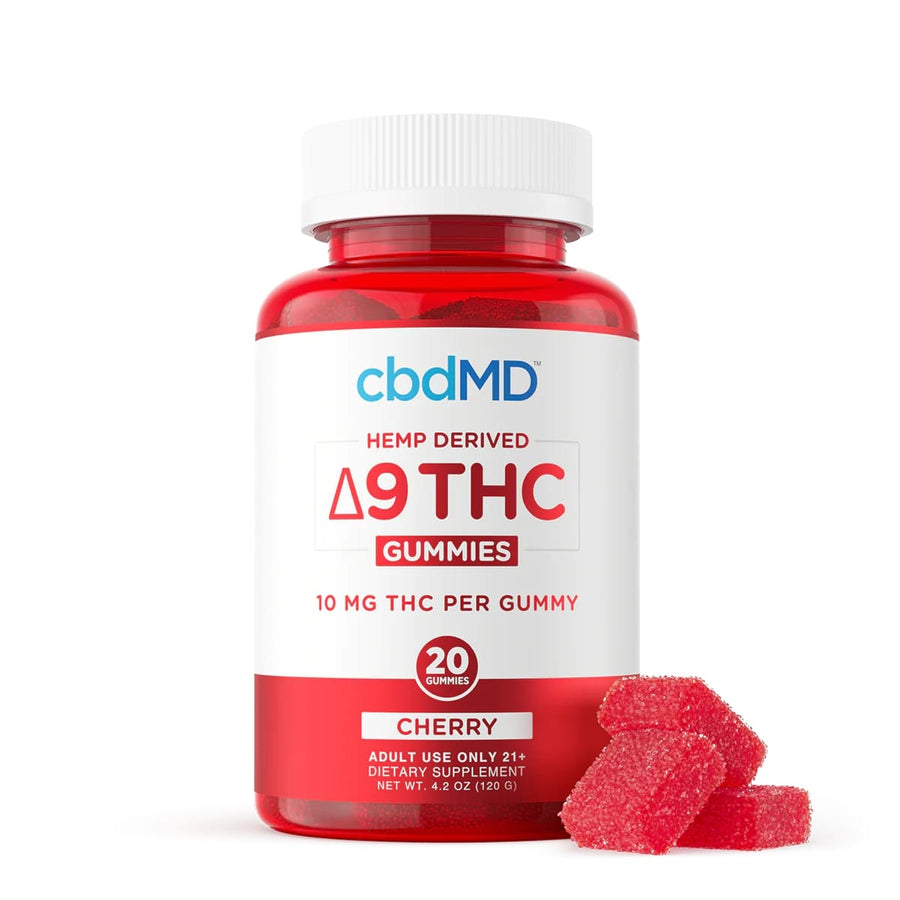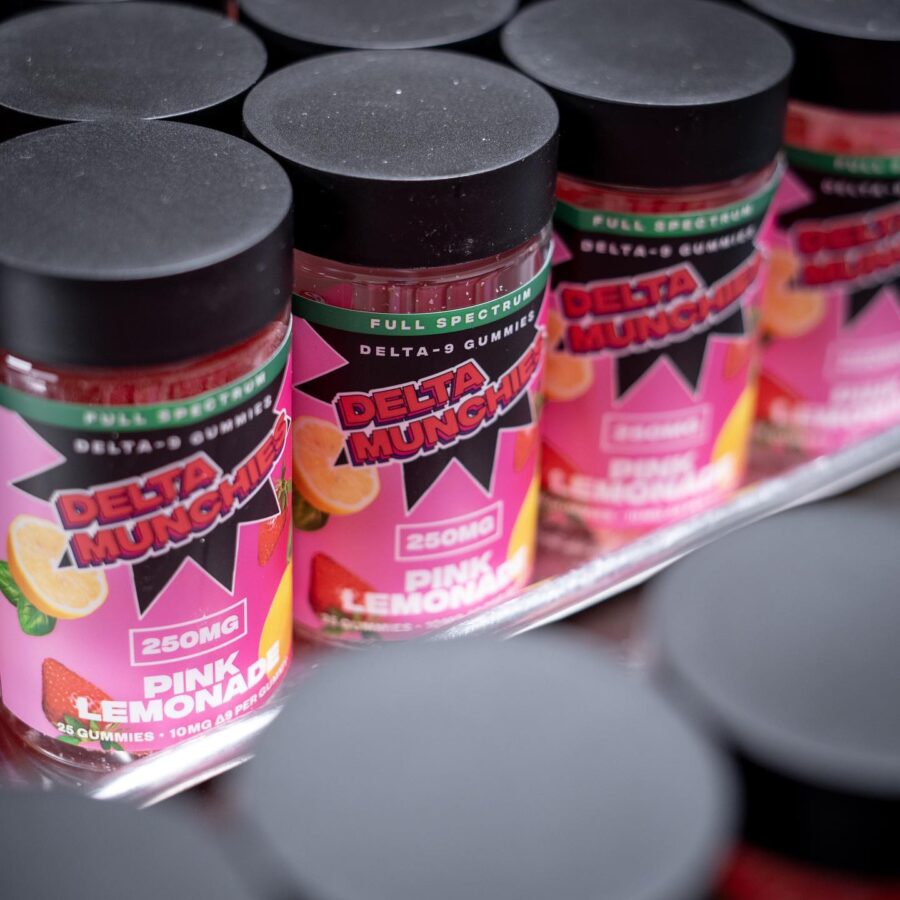Delta 9 gummies have rapidly gained popularity for their ability to deliver the benefits of THC in a convenient, tasty form. As more people discover their potential to enhance relaxation, alleviate pain, and boost mood, understanding how these gummies interact with the body’s endocannabinoid system (ECS) becomes essential. The ECS plays a pivotal role in maintaining balance and regulating various physiological processes, making it crucial to understand the effects of delta-9 THC in this system.
In this article, we will explore the science behind delta-9 gummies and how they impact your ECS, offering insights into the mechanisms through which they exert their effects. Whether you’re new to THC or an experienced user, understanding this connection can help you maximize the benefits of delta-9 gummies safely and effectively.

What is the Endocannabinoid System?
The endocannabinoid system (ECS) is a complex cell-signaling system present in all mammals, including humans. Its primary function is to regulate various bodily functions such as mood, appetite, pain sensation, immune response, and more. The ECS consists of three key components:
- Endocannabinoids – naturally occurring compounds similar to cannabinoids found in cannabis.
- Receptors – CB1 and CB2 receptors that are located throughout the body.
- Enzymes – responsible for breaking down endocannabinoids once they’ve fulfilled their function.
The ECS helps the body maintain homeostasis, or balance, by responding to external and internal changes. When you consume delta-9 gummies, the THC interacts with this system to produce various effects.
How Delta-9 THC Interacts with the ECS
Delta-9 THC is a psychoactive compound found in cannabis that directly interacts with the ECS. When you consume delta-9 gummies, the THC is metabolized by the body, entering the bloodstream and eventually reaching the brain and other organs. Here, it binds to cannabinoid receptors, particularly CB1 receptors found in the brain and central nervous system, producing effects such as euphoria, relaxation, and altered perception.
The THC in delta-9 gummies can also bind to CB2 receptors, which are primarily located in the peripheral organs and immune system. This interaction can influence immune responses, potentially reducing inflammation and pain. The unique combination of effects from both CB1 and CB2 receptors contributes to the diverse range of benefits associated with delta-9 THC.
The Role of CB1 Receptors in the Brain
CB1 receptors play a central role in the psychoactive effects of delta-9 gummies. Located predominantly in the brain, these receptors are responsible for regulating mood, memory, and cognition. When THC binds to CB1 receptors, it can produce feelings of euphoria and relaxation, making it ideal for those seeking stress relief or an enhanced sense of well-being.
In addition to its mood-altering effects, CB1 receptor activation can influence cognitive functions such as memory and attention. However, overactivation of these receptors may lead to short-term memory impairment, a common side effect of THC consumption. Understanding how delta-9 gummies interact with these receptors can help users manage their dosage for optimal effects.
The Impact of CB2 Receptors on Pain and Inflammation
CB2 receptors, found throughout the immune system, play a key role in regulating inflammation and pain. When delta-9 THC binds to these receptors, it can help reduce inflammation and alleviate pain by modulating immune cell activity. This makes delta-9 gummies a potential option for individuals suffering from chronic pain, joint discomfort, or inflammatory conditions.
The anti-inflammatory properties of THC are particularly beneficial for those who seek natural remedies for pain relief without relying on pharmaceutical medications. Delta-9 gummies may provide a more manageable and gradual experience compared to other forms of THC, such as smoking or vaping, making them a preferable choice for some users.
Effects of Delta-9 Gummies on Mood and Stress Levels
One of the most well-known effects of delta-9 gummies is their ability to improve mood and reduce stress. By interacting with the CB1 receptors in the brain, delta-9 THC can promote relaxation and a sense of calm. Many users report feeling a heightened sense of well-being and relief from anxiety after consuming delta-9 gummies.
These mood-enhancing effects are often attributed to the way THC increases the release of dopamine, the “feel-good” neurotransmitter, in the brain. As a result, delta-9 gummies may provide a temporary escape from stress and anxiety, making them an attractive option for individuals looking for natural ways to cope with daily pressures.

Potential Therapeutic Benefits of Delta-9 Gummies
Aside from their recreational benefits, delta-9 gummies also have potential therapeutic applications. Research suggests that THC may have therapeutic benefits for conditions such as:
- Chronic Pain: Delta-9 THC’s interaction with CB2 receptors can help reduce inflammation and alleviate pain, making it a potential option for individuals with conditions like arthritis or neuropathy.
- Anxiety and Depression: The mood-enhancing effects of THC may help individuals manage anxiety and depression, though it’s important to note that THC can affect people differently.
- Sleep Disorders: Delta-9 THC may also have sedative effects that can help individuals struggling with insomnia or other sleep disorders.
It’s important to note that while delta-9 gummies may offer therapeutic benefits, they should be used cautiously and under the guidance of a healthcare professional, especially for those with underlying health conditions or those taking other medications.
Conclusion
Delta-9 gummies offer a unique and enjoyable way to experience the benefits of THC while impacting the body’s endocannabinoid system. By interacting with both CB1 and CB2 receptors, delta-9 THC can produce a wide range of effects, including mood elevation, pain relief, and relaxation. Understanding how delta-9 gummies affect the ECS can help users make informed decisions about their consumption and ensure a positive experience.
As with any cannabis product, it’s essential to approach delta-9 gummies with caution, especially for those new to THC. Start with a low dose and monitor how your body responds to find the optimal dosage for your needs.

